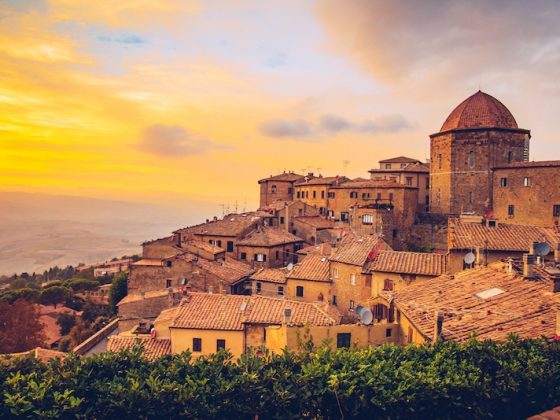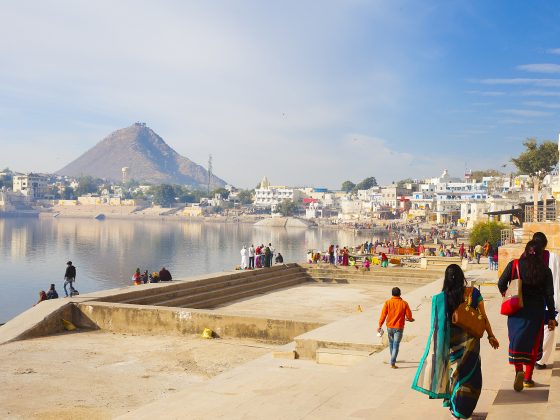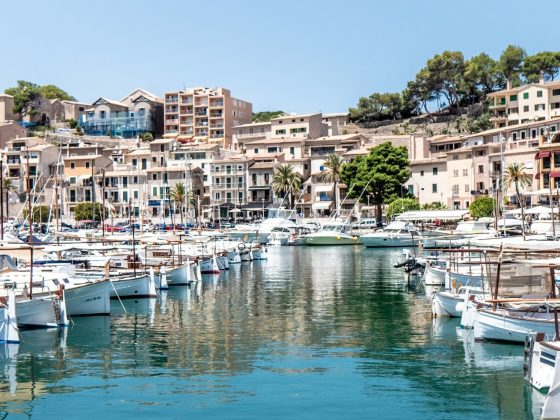A Tale of Two
When I moved from the dense hum of Kyoto to the snow-dusted stillness of Helsinki, I didn’t expect to find such peace.
Finland has ranked first in the UN World Happiness Report for eight consecutive years, leading the world in life satisfaction, public trust, and well-being. For outsiders, this might seem surprising. The landscape can be harsh, the winters long and dark, and the people famously reserved. Yet for those living in Finland, beneath the quiet exterior lies a profound kind of contentment—a happiness not rooted in exuberance, but in something calmer, sturdier, and quietly enduring.
What exactly makes living in Finland different? And what underpins Finnish happiness? To better understand Finland’s remarkable consistency, it helps to compare it with other high-functioning countries that nonetheless report lower well-being. My home country, Japan, is one such example: a society known for discipline, longevity, and social cohesion, yet where happiness often takes a back seat to duty and endurance.
Through this lens, and drawing comparisons to Japan’s high-achieving but often high-pressure culture, I see what distinguishes Finland—and what defines living in Finland – from trust and transparency to education, equality, and a cultural resilience known as sisu.

Read more like this: Top 10 Things to Know if You’re Moving to Japan
Trust and Transparency
One trait Finland shares with Japan is an ingrained trust in people. Walk through any neighborhood in either country and you’ll see unlocked bikes against fences, children walking home alone, wallets returned with money untouched. Everyday life is built on the quiet expectation of honesty.
Similarly to Japan, there’s a quiet comfort in living in Finland, where people tend to believe in each other—and more often than not, that trust is well-placed. But the critical difference is where this trust extends. In Finland, it reaches beyond individuals into the very institutions that govern daily life. Finland ranks consistently among the least corrupt countries globally. Citizens have open access to government information, independent media, and a political system that emphasizes accountability. Laws are clear, taxes are fairly distributed, and public officials are held to high ethical standards.
Read more like this Lapland in Summer
By contrast, while Japan maintains social trust, faith in political institutions can feel more fragile. Bureaucratic hierarchies are often opaque, and scandals occasionally erode public confidence. Trust tends to reside within personal networks, not public systems.
In Finland, transparency isn’t an act of bravery—it’s the default. Citizens don’t waste energy protecting themselves from scams or navigating complex bureaucratic systems. Instead, a baseline assumption of fairness eases daily life.
This deep social trust reduces anxiety, lowers daily friction, and creates a strong sense of psychological safety. It even simplifies governance—many official documents rely on self-reporting rather than surveillance, a quiet testament to the belief that most people will do the right thing.
Finland ranks consistently among the least corrupt countries globally. Citizens have open access to government information, independent media, and a political system that emphasizes accountability.

Education Without Pressure
Finland’s education system enjoys global admiration, and not because of high-stakes testing or grueling schedules. Its success lies in a simple, radical idea: learning should be joyful, not fear-driven.
In Finnish schools, creativity, curiosity, and emotional development are valued as highly as literacy and numeracy. Standardized testing is rare, homework is minimal, recess is frequent, and classrooms are designed to foster not competition, but collaboration.
Teachers—each required to hold a master’s degree—are trusted to shape their classrooms independently. Autonomy is prized, and the focus is on supporting every child, not on ranking them. Struggling students are given help early, without stigma, ensuring that no one is left behind.
The system is built on equity, not elitism. Private schools are rare, and public schools, whether rural or urban, are equally well-resourced. Parents don’t obsess over getting children into elite institutions because none dominate the social hierarchy. This is sharply different from Japan, where academic success often dictates social standing. In Japan, students juggle regular schooling with after-hours cram schools, and pressure mounts from a young age.
Finland’s model proves that excellence need not come at the cost of mental health. By embracing equity and nurturing curiosity, it produces confident, resilient learners who carry that self-assurance into adulthood.
In Finnish schools, creativity, curiosity, and emotional development are valued as highly as literacy and numeracy.
Living in Finland: Work-Life Balance
In a world that often equates success with burnout, Living in Finland offers a radically different approach. Finns work fewer hours than most Europeans—around 32 to 35 hours per week—and still maintain a high quality of life.
Here, rest is not seen as indulgence, but as necessity. Long vacations are protected by law. When the workday ends, it truly ends. It’s common for professionals to leave work at 4 p.m. and spend their evenings outdoors, cooking with family, or unwinding in the sauna.
Workplaces are built on autonomy and trust. Employees are expected to manage their own time and deliver results without micromanagement. Productivity is measured by outcomes, not presence.
A friend of mine who works for Finnair told me, “Living in Finland, flat hierarchies and a culture of trust mean employees don’t hesitate to raise concerns or admit mistakes, not just because strong labor protections have their back, but because Finnish culture itself values honesty and transparency over hierarchy or saving face.”
That openness keeps dysfunction from festering. Issues are addressed early and collaboratively, and employees feel secure enough to be candid. Accountability becomes a tool for growth, not punishment.
The Finnish welfare system reinforces this security. Parental leave is generous and available to both parents. Unemployment benefits are accessible and dignified. Government programs for retraining and lifelong learning are widely available. By supporting flexibility, recovery, and self-direction, Living in Finland ensures that work does not eclipse life—and that well-being remains a national priority.
Sisu : Quiet Resilience
At the heart of Finnish culture lies sisu—an untranslatable concept that embodies quiet strength, determination, and dignity in adversity. But sisu is not about suffering in silence or glorifying hardship. It’s about steady perseverance, a calm commitment to endure without losing oneself along the way. Sisu explains why Finns don’t dramatize success or struggle. They simply persist, quietly and competently.
The Japanese concept of gaman—enduring hardship for the sake of social harmony—offers a useful comparison. Both value resilience, but in Japan, endurance often carries an undertone of self-sacrifice. Living in Finland, sisu is deeply self-directed. It empowers rather than suppresses, grounding resilience in autonomy rather than obligation.
In a land where winters are long and light is scarce, this resilience is vital. Yet Finnish culture also makes room for vulnerability. Therapy is common. Conversations about mental health are open. Struggle is acknowledged without shame.
Sisu doesn’t replace the structural supports that underpin Finnish well-being—it strengthens them. It’s not the engine of happiness, but the foundation that allows it to endure.
In Japan, I learned to endure. Here, I’ve learned to breathe.
At the heart of Finnish culture lies sisu—an untranslatable concept that embodies quiet strength, determination, and dignity in adversity.

One of Finland’s quiet strengths is its social flatness. Here, hierarchy is minimal. People speak plainly to bosses, politicians, and strangers alike. In contrast, Japanese society, though cohesive, can feel stratified, governed by layers of etiquette and deference that often isolate individuals.
When Living in Finland, relationships are built slowly but deeply. Community support is understated but powerful: neighbors shovel snow for each other, parents share childcare duties, and crises are met with quiet solidarity. Equality is not aspirational—it’s cultural. Income inequality is low. Healthcare and education are free at the point of use. Vulnerability is treated with compassion, not shame.
Status symbols are rare. Wealth is not conspicuously displayed. Public spaces—from libraries to saunas—are open, accessible, and used by all. In the sauna, perhaps more than anywhere, this ethos is visible: everyone—regardless of job, status, or wealth—sits side by side, stripped of titles and pretenses.
Without the constant performance pressure found in more status-driven societies, Finns are free to simply be. That psychological freedom underpins a sense of belonging that no amount of individual success could replicate.
In Japan, I learned to endure. Here, I’ve learned to breathe.
Rethinking Happiness
A recent trip to Okinawa brought me full circle. Among elders dancing barefoot on the beach and neighbors trading homegrown fruit, I recognized something familiar: a quiet, communal happiness, rooted in connection rather than achievement.
Read more like this: Gentle Winds and Strong Hearts: The Quiet Wisdom of Okinawa
Finland, though culturally distinct, carries the same wisdom. True happiness isn’t built on striving, but on sufficiency. It’s measured not by what you have, but by how much space you’re given to breathe. Both Okinawa and Finland embody a rare model of well-being: one that prizes presence over pressure. They show that happiness thrives in relationships built on reciprocity, in societies built on fairness, and in cultures that value enough rather than more.
As someone who grew up in Japan, I found an unexpected comfort Living in Finland; the shared appreciation for silence, subtlety, and social harmony made it feel less like a foreign country and more like a quiet extension of home.

Lessons the World Can Learn
No country is perfect. Living in Finland faces its own challenges: rising youth mental health concerns, debates around immigration and identity, economic pressures. But its foundations are strong.
Finland’s place atop the UN World Happiness Report is not a coincidence. It’s the result of deliberate cultural and political choices: transparent governance, equitable education, robust worker protections, and a deeply rooted trust in others.
But more than policy, it’s a mindset—a commitment to balance over burnout, honesty over image, community over competition.
Perhaps the most beautiful thing about Finland’s approach is how quietly it rejects the dominant global narrative: that happiness lies in constant accumulation. Instead, it offers a quieter philosophy: that contentment comes not from more—but from enough.
“Perhaps the most beautiful thing about Finland’s approach is how quietly it rejects the dominant global narrative: that happiness lies in constant accumulation.”
Living in Finland: Stay Ahead of the Journey!
Subscribe now for the latest in Travel News, International Destinations, Expat Life, Moving Abroad and Digital Nomad opportunities we’ve got your next adventure covered. Don’t miss out!
FAQ About Living in Finland
What is it like living in Finland?
Living in Finland offers a high quality of life, excellent public services, and a deep connection to nature. The society values equality, education, and personal freedom, creating a peaceful and well-balanced lifestyle.
What is the cost of living in Finland?
The cost of living in Finland is relatively high compared to many countries in Europe. Housing, food, and transport can be expensive, especially in cities like Helsinki. However, healthcare, education, and public services are top-quality and largely subsidized.
What makes people in Finland so happy?
Finland’s happiness is rooted in social trust, equality, safety, and access to nature. People value simplicity and balance over material wealth, creating a culture of calm contentment.
Why is Finland ranked the happiest Country in the World?
Finland has been first in the UN World Happiness Report for eight years, thanks to high social trust, equality, quality of life, and access to nature. Finns prioritize balance, safety, and community over material wealth.
About the Author
Maiko Takama is a freelance writer specializing in sustainability and social issues. She is also the founder of Public Ecology, a sustainable knitwear brand. Originally from Kyoto, Japan, she is now based in Helsinki, Finland.
Contact Author
"*" indicates required fields
Stay Ahead on Every Adventure!
Stay updated with the World News on Escape Artist. Get all the travel news, international destinations, expat living, moving abroad, Lifestyle Tips, and digital nomad opportunities. Your next journey starts here—don’t miss a moment! Subscribe Now!










